Find Music Notation on Hard Time Come Again No More
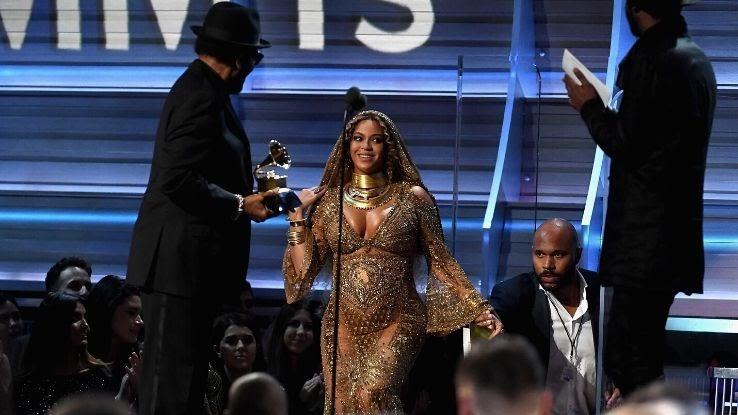
On Wednesday, June 10, the Grammys dropped the term "urban" from what was formerly known as the All-time Urban Contemporary Anthology category, and this relatively new accolade was rebranded as All-time Progressive R&B Album. Republic Records, the label that represents Nicki Minaj, The Weeknd and Drake, is among several other record companies that announced they too volition no longer apply the term in describing everything from music genres to employee titles.
More and more artists and executives have started calling for the removal of "urban" as a characterization in the music industry, including the winner of the 2020 Grammy for Best Rap album — Tyler, the Creator — who described the term as a "politically correct way to say the N-give-and-take." Although information technology once had its place in the radio manufacture — all the style dorsum in the 1970s — "urban" today bears racial undertones that alienate the Blackness artists information technology supposedly represents. It's time the music industry does away with this term completely, because, in the words of Republic Records, "urban" has "developed into a generalization of Black people" that does nothing only reinforce stereotypes.
Where Did "Urban" Come From?
DJ Frankie Crocker is often credited as being the get-go person to use the term "urban" to describe music. In the mid 1970s, Crocker worked every bit a DJ and radio program managing director at New York's and so-new station, WBLS-FM. Although his career at the station took off during the height of disco — Crocker was a frequent Studio 54 fixture and in one case rode into the club on a white horse — he preferred playing a various mix of music from an array of genres that included everything from funk, jazz and R&B to big band, reggae and an emerging mode that would eventually take the world by storm: hip-hop.
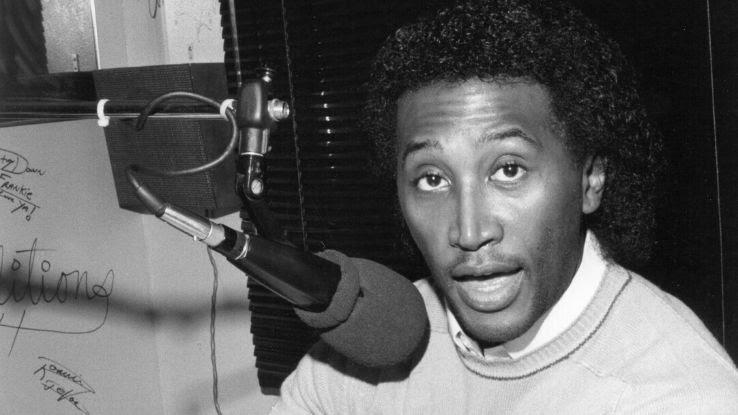
To describe the unique blend of genres that he played on the station, Crocker used the phrase "urban contemporary," likely drawing from the term "urban radio," which referred to Blackness-run radio stations during the Civil Rights era that used cloak-and-dagger codes to tell protestors where to see for marches. He used his platform to amplify Black voices, every bit many of the artists he played during his sets were African American and Caribbean area, and people began positively associating the phrase "urban contemporary" with the Blackness artists whose songs frequently appeared on the station. While initially "urban contemporary" described an exciting melange of musical styles on one radio show, others took the term and ran with information technology. Stations across the country in other large cities like Detroit began using the phrase when they played music like to Crocker's sets. Eventually, equally things tend to practise when someone realizes there's money to be fabricated, "urban contemporary" started to change in meaning to commodify, non correspond, Black artists and their art.
Music executives realized they could brainstorm marketing what they saw every bit "Black music" to white people without explicitly using words that referred to race, which staved off discomfort in an era when desegregation was still taking identify and white flight was dramatically irresolute the faces of American cities — which, perhaps ironically, were considered "urban" areas. In order to capitalize on this, executives started calling the music Crocker and others were playing "urban," an ambiguous-sounding term that lumped a variety of genres nether one umbrella term and did trivial for representation. While this was arguably helpful in that it allowed companies to marketplace music by Black artists to much wider audiences, information technology also allowed them to market to much whiter audiences — at a price.
Labeling music "urban" helped make white listeners and "white executives more comfortable," Billboard executive Gail Mitchell told NPR. While creating new "urban" divisions at tape labels and radio stations paved the way for Black executives to accept on burgeoning roles finding and helping Black artists, it besides immune white leaders at those organizations to essentially "[box] those executives in. [Urban] was a bad word to the white gatekeepers," Mitchell notes. As the term spread during the 1980s, it became a catchall give-and-take that implicitly referred to whatever music by Black people — no affair what the genre of a Black artist happened to be, their music was but "urban." And at that betoken, the word had picked up enough steam to get mainstream.
Why Is It Problematic to Draw Music as "Urban"?
The term "urban" existence used to describe musical genres wasn't problematic when Crocker practical information technology at WBLS-FM; it was celebratory and highlighted the variety of the urban city — New York City — that the station called habitation. But "urban" became a mode of saying "Black" without saying Blackness, and people started using it to refer to all Blackness artists, regardless of their genres. The word effectively blurred and even erased the identities and differences of the artists (whose creativity should've been honored) in order to make sure the culturally ascendant segment of the population didn't feel uncomfortable listening to certain music.
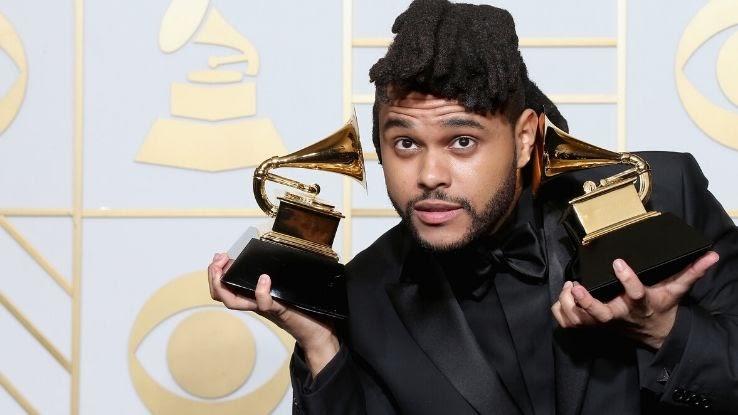
Information technology became a tool of oppression in the music manufacture, putting limits on Blackness artists' creativity and Black executives' bureau — "they [were] told to stay in their lane," which meant they needed to stick to the genres under the urban umbrella, Mitchell notes. "Urban" became a tool for relegating many Blackness artists to their own separate niche of music, essentially segregating them to one category and preventing their work from gaining recognition in genres that would've put them on the same level as white artists. This is seen in the fashion the discussion has been codified by its use as a label in some very prominent ways. There are the Grammy awards titles, of course, but record labels have "urban" divisions and radio stations are still referred to as "urban" when describing the music they play. Even vesture stores are often referred to as "urban" when they sell styles that Black musicians accept made popular.
Using the word "urban" to describe music genres has become a lazy way to group together much of today's music past Black artists. Information technology creates the impression of a Black-creative person monolith that fails to honor, or even take into account, the richly varied origins and talents and the diverse voices and perspectives of Blackness singers, songwriters, composers, musicians, producers and others who have fought tirelessly to secure their places in the music industry. "Urban" racializes music past grouping together artists past race. Information technology doesn't matter how different reggae is from hip-hop or R&B is from rap; it'southward all grouped together as "urban."
The term is problematic considering it marginalizes Black artists, setting them on their own exterior the residue of the genres that their music really encompasses. It keeps them on the periphery of the industry and obscures their true touch on music. Historically, it referenced Black without naming it, implying that at that place was something "wrong" with using the word "Blackness" considering such an overt reference would make white listeners uncomfortable, and those are unsafe waters to tread. It unfairly prevents artists from accessing genres where they could arguably find more success. Despite this, some artists and executives worry about "urban" eventually disappearing.
Are There Downsides to Removing "Urban"?
Although a number of artists, executives and other industry-adjacent professionals have criticized the continued apply of "urban," some aren't as excited to come across it go. Instead, they're fearful about what information technology could hateful for representation. An anonymous source at Commonwealth Records told Elias Leight of Rolling Stone that some Blackness employees were worried about the modify, maxim, "Their fear is, does getting rid of the term accept away our spot?" Leight goes on to note that, "for decades, 'urban' departments accept been the labels' only safety haven for Blackness executives. If 'urban' disappears, what protections remain?" Others worry that discontinuing the give-and-take's utilise is merely a symbolic gesture and that it won't really alter how a label operates — that labels will continue to group Black artists together based on their race.
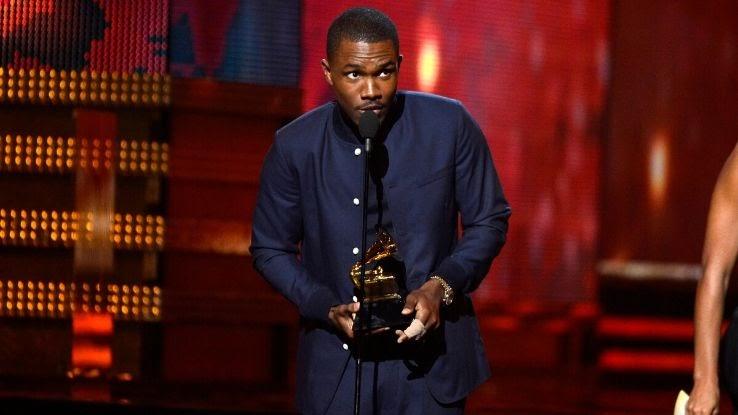
These concerns are real and valid, especially in the context of a word that has historically been used to erase Black identities from music. Equally record labels and other manufacture groups begin navigating a globe without "urban," it'due south of utmost importance that they continue intentionally creating space for Blackness employees and executives to ensure their voices are heard and their representation exists.
The Grammys Drop "Urban" — Sort Of
In a promising step forward, and perhaps arising from conversations about race that have arisen following protests over the murder of George Floyd, the Grammys opted to change the name of i laurels that previously used the term. However, "urban" is nevertheless in use in another accolade title. The Grammy Award for Best Latin Pop, Rock or Urban Album has undergone some changes and merged with other categories but continues to include the term in its new Best Latin Pop or Urban Award title. What exactly is meant past "urban" in this context — and why is it all the same there? Could there be separate awards for Latin Pop, Latin Rock and whatever genre "Latin Urban" might be instead of, again, group relatively disparate musical styles together because they're by Latinx artists?
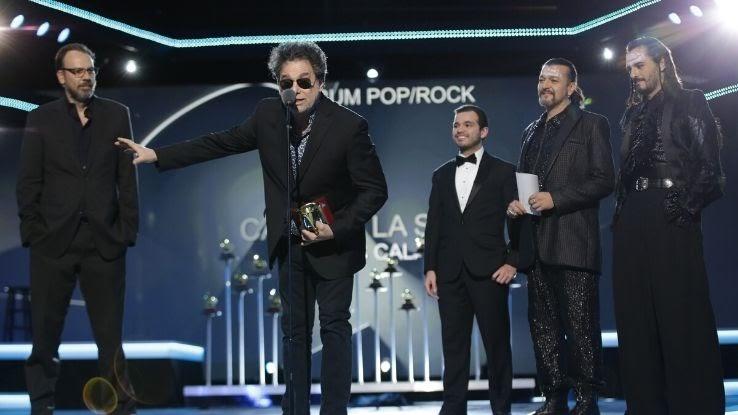
That "urban" was dropped in ane category but not some other is an interesting, if somewhat unexplainable, development. This could mean that the phasing out of the term's use will be gradual. On the other manus, it could mean that in that location's not a consensus among those in the industry who are involved in these decisions, and they need to become on the same page. This inconsistency in naming awards too brings up the question of whether the changes were only made to placate critics with the goal of reinstating normalcy, non of setting an example for a step toward positive change. At this early stage, only time will tell.
What Will the Time to come Hold for "Urban"?
The music manufacture and world at big have undergone many changes since DJ Frankie Crocker commencement coined "urban contemporary." When Crocker was dissemination in the 1970s, the role of a DJ was and so much more important to music culture than it is today. People didn't have the choice to load upward Spotify or Apple Music and choose a single vocal or genre to listen to. DJs curated their playlists using a diverseness of dissimilar styles and picked the music they felt would appeal most to their audiences. DJs lonely were the ones who could select and mix the music that played on the radio, and grouping several genres together made far more sense in the 1970s and '80s than information technology does today.
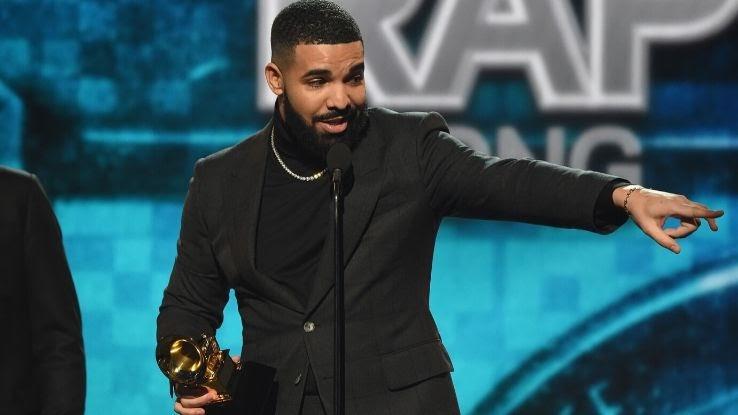
But things are different now, and information technology's time for the music industry to play a little catchup in a world where information technology'due south gotten used to dictating trends. The genres grouped together as "urban" are so diverse that often the just matter they have in common is the race of many of the artists, and information technology'south time for the music manufacture to acknowledge that variety in a way that's more meaningful. Forcing these genres nether the aforementioned category for the sake of an award can feel insulting to the artists involved and to artistry itself. It's time for the manufacture to remove "urban" from its vocabulary completely and start celebrating individual genres. And this needs to happen while the industry uses its power to secure spots for the Blackness executives currently working in "urban" departments — and the many more people of color it needs to hire in order to honor the diversity it's been capitalizing on for decades.
Source: https://www.ask.com/entertainment/grammys-removes-word-urban?utm_content=params%3Ao%3D740004%26ad%3DdirN%26qo%3DserpIndex
Post a Comment for "Find Music Notation on Hard Time Come Again No More"